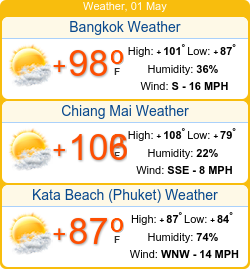
What's Happening at Wat Tampa
Search
Wat Tampa Visitors

As you may know, more than 95% of the population of Thailand is Buddhist. The Buddhist clergy (as we would say in America) are referred to as Monks. Like all religions Monks live by a separate and more restrictive code. Among the restrictions that a Monk follows is to depend on the people of the community for food. In Thailand it is not unusual to see people presenting food to the Monks as they walk along the street with their alms bowl. This provides two major benefits: it provides bodily nourishment to the monks. In addition, lay people earn merit by feeding the Monks.
A Monk living in America follows the same rules. Every day at 11 AM at Wat Tampa lay members of the Wat bring food for the Monks. This, like so many of the activities at our temple, is done by volunteers. This is a joyous occasion as the lay people are earning merit. Usually, about once a month we have a public ceremony to give food to the Monks. On these days people earn merit by giving food to the Monks in a public ceremony. Most people will give one "meal" consisting of rice, a meat dish, and desert. Others may give water (or some beverage), flowers, and perhaps a small monetary contribution which the Monks use for soap, etc. What is given is not as important as giving. For the convenience of all, we have small containers of food for sell on alms days for those who need it. The food is donated by various members of the Thai community and all the proceeds go to the temple.
It is useful to discuss the role that the Wat plays in Thai life. As you probably expect the Wat is the center of religious activity. For Thai people, here and in Thailand the Wat plays a number of other roles. The Monks, as do leaders in other religions, play an important role in comforting people in times of distress (e.g., funerals) as well as preside over other ceremonies. In Thailand it is not unusual for a young man to become a Monk for 3 months or more. The length of time that a man stays a Monk is variable. Becoming a Monk is another way to earn merit. It also increases the young man’s knowledge of the Buddhist way of life. This helps strengthen the young man’s concept service to others as well as strengthens the bond between generations (common experience).
In some cases the Wat also provides social services such as hosting schools and providing lodging for the homeless. For example, Wat Tampa offers a summer school program that teaches Thai reading and writing, Thai customs, and (depending on the teacher) other activities such as Thai dancing. To many Thai’s the Wat is central to their daily lives. While this is probably less true for Thai people living in the United States the fact that so many people come to the Wat in times of stress is testament to the central role that Buddhism and the Wat play in the lives of Thai people.
I’d like to talk a little bit about Thai customs that you may have seen but not understood. Thailand has a rich culture and reputation for friendliness and informality. There are some things to keep in mind as you visit the Wat. Thai’s are very understanding so don’t expect that anyone will correct you on the tips below.
Although Thais appear to be very informal there is, as they say, more behind the scenes. In Thai society age and rank play a very key part in polite society. The Wai (as shown above) is a greeting and you may notice this as part of paying respect to your elders. There are some simple things to keep in mind when "Waiing".
The younger person (especially when there is a significant difference in age) initiates the wai. The older person returns the wai. Many times you’ll hear someone say "sa-wat-di". This is the universal greeting. You may also hear the word "Kha" or "Kop" added after "sa-wat-di". "Kha" is a polite particle used by female speakers. "kap" is the polite particle for males.
The exception to this is when greeting a monk. The person would wai the monk. The monk does not return the wai but simply acknowledges the greeting.
We invite you to view interior of the temple. Please remove your shoes before entering. You will find a good display of books on Buddhism that are free.
